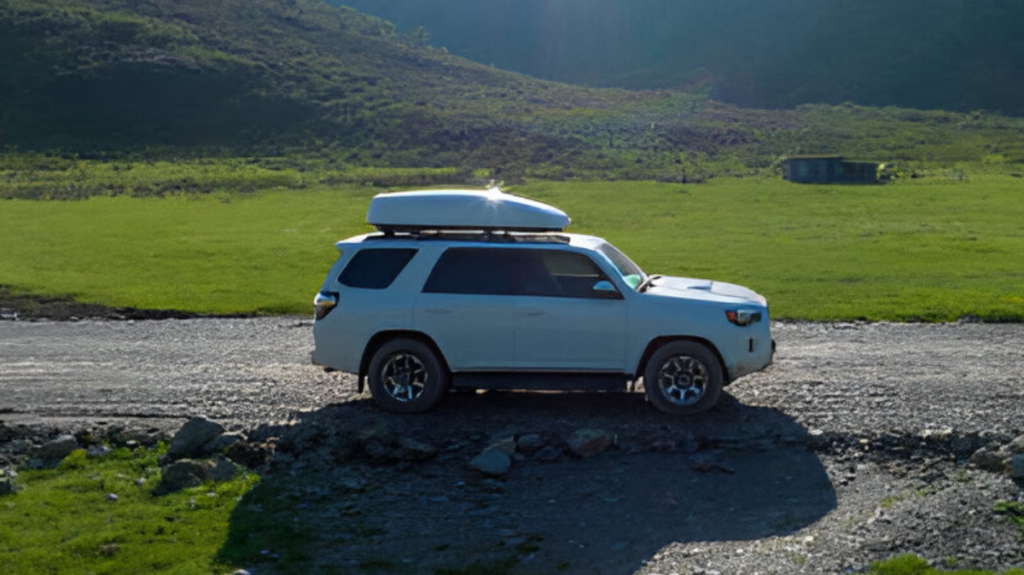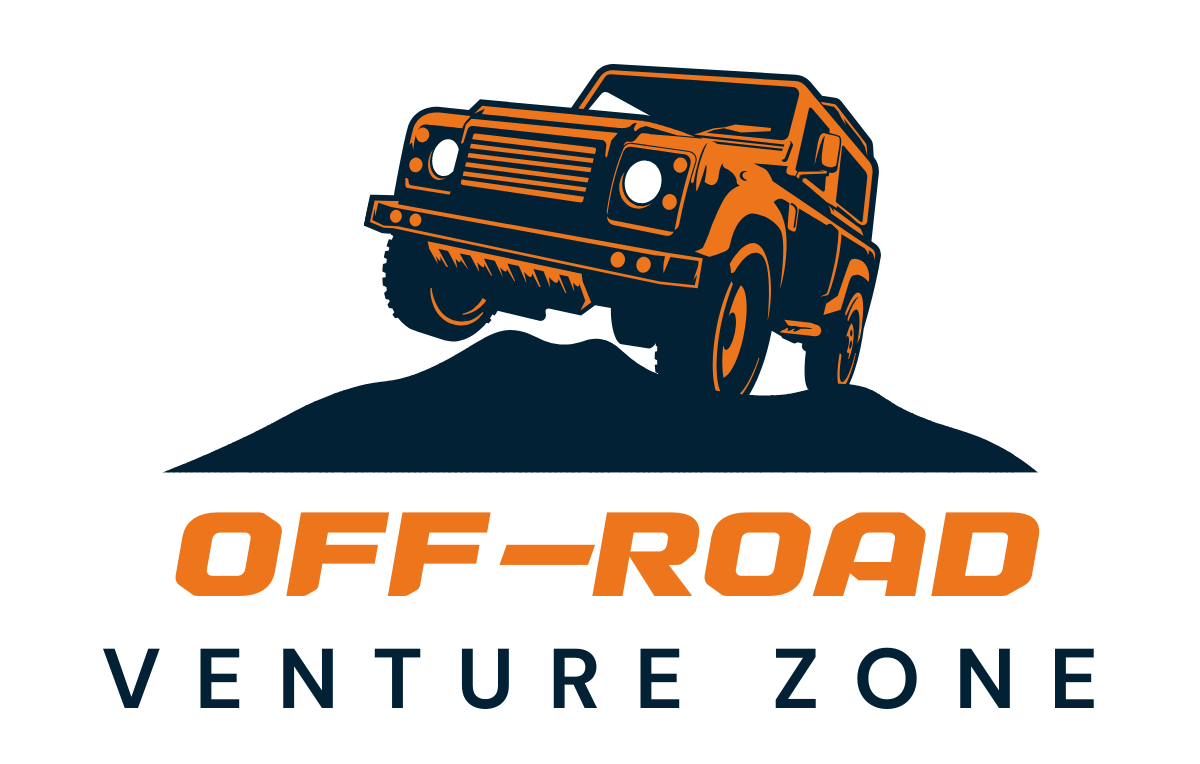Sport Utility Vehicles, or SUVs, have become a common sight on roads around the world. These versatile vehicles offer a unique blend of features that appeal to many drivers. From families to adventure seekers, SUVs have found a special place in the hearts of car buyers.

Contents
What is an SUV?
An SUV is a special type of car that’s designed to be versatile. The word “versatile” means it can do many different things well. SUVs are usually bigger than regular cars, but smaller than vans or trucks. They have some important features that make them stand out:
First, SUVs are taller than most cars. This means you sit higher up when you’re driving, which helps you see the road better. It also makes it easier to get in and out of the car, which is nice for people who have trouble bending down.
Second, SUVs have more space inside than regular cars. They often have room for five or more people to sit comfortably. There’s also lots of space in the back for carrying things like groceries, sports equipment, or suitcases for a family trip.
Third, many SUVs have four-wheel drive or all-wheel drive. This means that the engine sends power to all four wheels instead of just two. This helps the car drive better in slippery conditions like snow or mud.
Popularity of SUVs
SUVs have become super popular over the last few decades. In fact, in many countries, people buy more SUVs than any other type of car. But why do so many people love SUVs? There are a few big reasons:
First, SUVs make people feel safe. Because they’re bigger and taller than most cars, many people think they’ll be better protected if they get in an accident. While this isn’t always true, it’s a feeling that makes a lot of people choose SUVs.
Second, SUVs are very practical. They have lots of space inside for people and things. This makes them great for families who need to carry kids, pets, sports gear, and groceries all at the same time. The extra space also makes SUVs comfortable for long trips.
Third, SUVs can handle all sorts of weather and road conditions. Whether it’s snowing, raining, or the road is a bit rough, most SUVs can handle it well. This makes people feel more confident when driving in bad weather or on not-so-great roads.
Types of SUVs
There are several different types of SUVs. Each type is designed for different needs and preferences. Let’s look at the main types of SUVs you might see on the road:
Compact SUVs
Compact SUVs are the smallest type of SUV. They’re perfect for people who want the benefits of an SUV but in a smaller package. These SUVs are great for driving in cities because they’re easier to park and move through tight spaces. They also use less gas than bigger SUVs, which is good for your wallet and the environment.
Compact SUVs usually have room for five people and some luggage. They’re a good choice for small families or people who don’t need to carry a lot of stuff. Some popular compact SUVs are the Honda CR-V, Toyota RAV4, and Ford Escape.
Mid-Size SUVs
Mid-size SUVs are a step up in size from compact SUVs. They offer more space inside and often have stronger engines. Many mid-size SUVs can seat up to seven people, making them great for larger families. They have more room for cargo too, so you can pack more for long trips.
Mid-size SUVs are a good balance between the easy driving of a smaller car and the space and power of a bigger SUV. They can handle some light off-road driving and often can tow small trailers. Examples of mid-size SUVs include the Ford Explorer, Jeep Grand Cherokee, and Honda Pilot.
Full-Size SUVs
Full-size SUVs are the biggest SUVs you can buy. They’re like the giants of the SUV world. These SUVs have lots of space inside for passengers and cargo. Most full-size SUVs can seat seven or eight people comfortably, and some can even fit nine!
Full-size SUVs have powerful engines that can tow heavy trailers or boats. They’re great for big families, especially those who like to go on long road trips or camping adventures. However, because they’re so big, they use more gas than smaller SUVs and can be harder to park in tight spaces. Some popular full-size SUVs are the Chevrolet Tahoe, Ford Expedition, and Toyota Sequoia.
Luxury SUVs
Luxury SUVs are special SUVs that are made to be extra comfortable and fancy. They have all the space and capability of regular SUVs, but with added features that make them more luxurious. These might include things like super-comfortable leather seats, advanced sound systems, and the latest technology features.
Luxury SUVs are made by car companies known for their high-end vehicles, like BMW, Mercedes-Benz, and Lexus. They cost more than regular SUVs, but they offer a more premium driving experience. Some examples of luxury SUVs are the BMW X5, Mercedes-Benz GLE, and Lexus RX.
Crossover SUVs
Crossover SUVs are a special type of SUV that’s become very popular in recent years. They’re called “crossovers” because they cross between a regular car and an SUV. Crossovers are built on a car platform, which means they drive more like a car than a traditional SUV.
Crossovers offer many of the benefits of SUVs, like higher seating and more cargo space, but they’re usually lighter and more fuel-efficient. They’re great for people who want some SUV features but don’t need all the power and size of a full SUV. Some popular crossover SUVs include the Nissan Rogue, Mazda CX-5, and Subaru Forester.
Key Features of SUVs
SUVs have several key features that make them stand out from other types of vehicles. These features are a big part of why so many people choose to buy SUVs. Let’s look at some of the most important features:
Performance and Engine Options
SUVs come with different types of engines to suit different needs. Some have smaller engines that save gas, while others have bigger, more powerful engines. The engine in an SUV affects how fast it can go, how much it can tow, and how much gas it uses.
Many SUVs offer a choice of engines. You might be able to pick between a four-cylinder engine that’s good on gas, or a bigger six-cylinder engine that’s more powerful. Some large SUVs even have eight-cylinder engines for maximum power.
Some modern SUVs also have turbocharged engines. These special engines can provide lots of power while still being pretty good on gas. This gives you the best of both worlds – power when you need it, and better gas mileage for everyday driving.
Interior Space and Comfort
One of the biggest reasons people love SUVs is the space inside. SUVs have roomy interiors with lots of headroom and legroom. This makes them comfortable for both drivers and passengers, even on long trips.
Most SUVs can carry five people easily, and many larger ones can fit seven or even eight people. This makes them great for big families or for carpooling. The seats in SUVs are often adjustable and some even have special features like heating or cooling to make them extra comfortable.
SUVs also have lots of cargo space. This means there’s plenty of room for things like groceries, sports equipment, or suitcases. Many SUVs have back seats that can fold down to create even more space when you need to carry big items.
Safety Features
Safety is super important in any vehicle, and SUVs often come with lots of safety features. Many people feel safer in SUVs because they’re bigger and sit higher up, which can help the driver see the road better.
Modern SUVs have many advanced safety features. These might include things like:
- Multiple airbags to protect passengers in case of a crash
- Anti-lock brakes to help the driver stop safely
- Electronic stability control to help keep the SUV stable on slippery roads
- Backup cameras to help the driver see behind the vehicle when reversing
Many newer SUVs also have high-tech safety features like lane departure warnings (which tell you if you’re drifting out of your lane), automatic emergency braking (which can stop the car if it detects a possible crash), and blind spot monitoring (which lets you know if there’s a car in your blind spot).
Off-Road Capability
While not all SUVs are made for serious off-road driving, many have features that make them good at handling rough roads or bad weather. This is one thing that sets SUVs apart from regular cars.
Many SUVs come with four-wheel drive or all-wheel drive. This means the engine sends power to all four wheels instead of just two. This helps the SUV drive better on slippery or uneven surfaces like snow, mud, or gravel roads.
SUVs also usually have higher ground clearance than regular cars. This means the bottom of the SUV is further from the ground, which helps it clear obstacles like rocks or deep snow without getting stuck.
Some SUVs, especially those made for off-road driving, have even more special features. These might include things like special tires for better grip, underbody protection to prevent damage from rocks, or advanced four-wheel drive systems that the driver can adjust for different types of terrain.
Fuel Efficiency
In the past, SUVs were known for using a lot of gas. But things have changed a lot in recent years. Car makers have worked hard to make SUVs more fuel-efficient, which means they can go further on less gas.
Modern SUVs use several techniques to improve fuel efficiency:
- Lighter materials: Many SUVs now use lighter materials like aluminum in their construction. A lighter vehicle needs less fuel to move.
- More efficient engines: New engine technologies help SUVs use fuel more efficiently.
- Aerodynamic design: SUVs are now designed to slip through the air more easily, which helps save fuel.
- Hybrid and electric options: Many car makers now offer hybrid SUVs, which use both gas and electricity for power. There are even fully electric SUVs that don’t use any gas at all.
While larger SUVs still tend to use more fuel than smaller cars, the difference isn’t as big as it used to be. And with more hybrid and electric options available, it’s now possible to get the benefits of an SUV without using as much gas.

Advantages of Owning an SUV
There are many reasons why people choose to buy SUVs. Let’s look at some of the main advantages of owning an SUV:
Versatility
One of the biggest benefits of SUVs is that they’re very versatile. This means they can be used for lots of different things. An SUV can be a comfortable car for your daily drive to school or work, a spacious vehicle for family road trips, and a capable machine for outdoor adventures.
Need to pick up a big piece of furniture? An SUV can probably handle it. Want to go camping in the mountains? An SUV can likely get you there. Have to drive on snowy roads? Many SUVs are great in winter weather. This versatility means that one vehicle can meet many different needs, which is why so many people love SUVs.
Safety
Many people feel safer in SUVs because of their size and height. In some types of accidents, larger vehicles like SUVs can provide better protection than smaller cars. The high seating position in SUVs also gives drivers a better view of the road, which can help them spot potential dangers earlier.
Modern SUVs come with many advanced safety features. These can include multiple airbags, anti-lock brakes, and electronic stability control. Many newer SUVs also have high-tech safety systems that can help prevent accidents from happening in the first place.
Family-Friendly
SUVs are often called “family cars” because they’re so good for families. The spacious interiors provide plenty of room for kids, car seats, strollers, and all the other stuff that comes along with family life.
Many SUVs have special features that are great for families, like rear-seat entertainment systems to keep kids happy on long trips, or multiple USB ports so everyone can charge their devices.
Larger SUVs often have three rows of seats, which means the whole family can travel together in one vehicle. This can be really convenient and can help families save money compared to having two smaller cars.
Towing and Hauling Capability
If you need to tow a trailer or carry heavy loads, an SUV can be a great choice. Many SUVs, especially larger ones, have strong engines and sturdy frames that allow them to tow thousands of pounds. This makes them ideal for people who have boats, camping trailers, or other large items that need to be towed.
SUVs also have lots of space inside for hauling cargo. Whether you’re moving furniture, carrying sports equipment, or bringing home a big load of groceries, an SUV can usually handle it. The ability to fold down seats in most SUVs means you can create even more cargo space when you need it.
How to Choose the Right SUV
With so many SUVs available, choosing the right one can be tricky. Here are some steps to help you find the perfect SUV for your needs:
Determine Your Needs
The first step in choosing an SUV is to think about how you’ll use it. Do you need lots of seats for a big family? Will you be doing mostly city driving or highway driving? Do you need to tow anything? Do you want something that’s good in snow or off-road?
Make a list of the things that are most important to you in a vehicle. This might include things like fuel efficiency, cargo space, safety features, or performance. Having a clear idea of what you need will help you narrow down your choices.
Budget Considerations
SUVs come in a wide range of prices, from fairly affordable to very expensive. Think about how much you can afford to spend, not just on buying the SUV but also on things like gas, insurance, and maintenance.
Remember that larger SUVs and luxury models will generally cost more to buy and run. If you’re on a tight budget, a compact SUV or crossover might be a good choice. These smaller SUVs are usually less expensive and use less gas than larger models.
Fuel Efficiency and Environmental Impact
Think about how much driving you’ll be doing and how important fuel efficiency is to you. If you do a lot of driving, a more fuel-efficient SUV could save you a lot of money on gas over time.
Also consider the environmental impact of your choice. If this is important to you, you might want to look at hybrid or electric SUV options. These vehicles produce less pollution and can be much cheaper to run, although they might cost more to buy initially.
Test Driving and Researching
Once you’ve narrowed down your choices, it’s time to do some hands-on research. Read reviews from experts and other SUV owners. Look for information about how reliable different SUV models are and if they have any common problems.
Most importantly, take the SUVs you’re considering for a test drive. This will give you a feel for how the vehicle handles and whether it’s comfortable for you. Pay attention to things like how easy it is to see out of the SUV, how it feels to park, and whether you like the way the controls are laid out.
Don’t be afraid to test drive several different SUVs before making your choice. Buying a vehicle is a big decision, and it’s important to find one that you’ll be happy with for years to come.
Top SUV Brands and Models
Many car companies make SUVs, but some brands are particularly well-known for their SUV models. Here are a few top SUV brands and some of their popular models:
Toyota
Toyota is known for making reliable, practical SUVs. One of their most popular models is the RAV4, which is a compact SUV that’s great for everyday use. It’s fuel-efficient and has plenty of space for a small family.
Toyota also makes the Highlander, which is a larger SUV with three rows of seats. For people who want to go off-road, Toyota offers the 4Runner, which is built to handle tough terrain.
Honda
Honda is another company that makes popular SUVs. Their CR-V is one of the best-selling compact SUVs in many countries.
People like it because it’s comfortable, reliable, and good on gas. Honda also makes the Pilot, which is a larger SUV that’s great for families. It has three rows of seats and lots of safety features.
Ford
Ford has been making SUVs for a long time. They offer a wide range, from small to large. The Ford Escape is a popular compact SUV that’s good for city driving.
The Explorer is a larger SUV that’s been around for many years. It’s known for being versatile and comfortable. For people who need a really big SUV, Ford makes the Expedition, which can seat up to eight people.
Chevrolet
Chevrolet, often called Chevy, is known for making sturdy, powerful SUVs. The Chevrolet Equinox is their compact SUV, which is good for families who don’t need a lot of space.
The Traverse is a mid-size SUV with room for up to eight people. For those who want a really big SUV, Chevy makes the Tahoe and Suburban, which are some of the largest SUVs you can buy.
BMW
BMW is a German company that makes luxury vehicles, including SUVs. Their SUVs are known for being sporty and fun to drive, as well as very comfortable. BMW calls their SUVs “Sports Activity Vehicles” or SAVs.
They make several models, from the compact X1 to the large X7. These SUVs are more expensive than many other brands, but they offer a lot of advanced features and high-quality materials.

The Future of SUVs: Trends and Innovations
The world of SUVs is always changing. Car makers are constantly working on new ideas to make SUVs better. Here are some of the exciting trends and innovations we’re seeing in SUVs:
Electric and Hybrid SUVs
One of the biggest trends in SUVs is the move towards electric and hybrid models. As people become more concerned about the environment and the cost of gas, car makers are creating SUVs that use less fuel or no fuel at all.
Electric SUVs run entirely on electricity. You charge them by plugging them in, just like you charge a phone. These SUVs don’t produce any exhaust, which is good for the environment. Some popular electric SUVs include the Tesla Model Y and the Ford Mustang Mach-E.
Hybrid SUVs use both a regular gas engine and an electric motor. This allows them to use less gas than traditional SUVs. Some hybrids can be plugged in to charge, while others charge their electric motors while you drive.
As technology improves, we’re likely to see more electric and hybrid SUVs in the future. These vehicles will probably be able to go further on a single charge and charge up faster.
Autonomous Features and Advanced Technology
Another exciting trend in SUVs is the development of autonomous, or self-driving, features. While fully self-driving cars are still in the future, many modern SUVs have features that can help with driving.
For example, some SUVs can now keep themselves centered in a lane on the highway, maintain a safe distance from the car in front, and even park themselves. These features make driving easier and safer.
SUVs are also getting smarter in other ways. Many now have large touchscreen displays that control most of the car’s functions. Some have voice control, so you can ask your SUV to do things like change the radio station or set the navigation system.
In the future, we might see SUVs that can communicate with each other and with traffic signals to help prevent accidents and reduce traffic jams.
Green and Sustainable Features
As people become more concerned about the environment, car makers are looking for ways to make SUVs more eco-friendly. This goes beyond just making electric and hybrid models.
Some car makers are using recycled materials to build parts of their SUVs. For example, they might use recycled plastic to make seat cushions or carpets. Others are using sustainable materials like bamboo for interior trim.
Car makers are also working on making SUVs more aerodynamic. This means shaping them so they slip through the air more easily, which helps save fuel. Some SUVs now have features like grille shutters that can close at high speeds to improve aerodynamics.
In the future, we might see SUVs made from new, more sustainable materials. We might also see more SUVs designed to be recycled at the end of their life.
Conclusion
SUVs have come a long way since they first appeared on roads. Today, they offer a unique combination of space, versatility, comfort, and capability that appeals to a wide range of drivers. From compact models perfect for city driving to large, powerful vehicles built for off-road adventures, there’s an SUV to suit almost every need and preference.
As technology advances and environmental concerns grow, we’re seeing exciting developments in the SUV world. Electric and hybrid models are becoming more common, offering the benefits of an SUV with lower environmental impact. Advanced safety features and autonomous driving capabilities are making SUVs safer and easier to drive than ever before.
Are SUVs safe?
SUVs are generally considered safe vehicles due to their size and advanced safety features. However, like any vehicle, their safety depends on various factors including the specific model, how it’s driven, and road conditions.
Do all SUVs have four-wheel drive?
Not all SUVs come with four-wheel drive. Many offer it as an option, while others come with front-wheel drive or all-wheel drive. It’s important to check the specifications of the specific model you’re interested in.
Are SUVs bad for the environment?
Traditionally, SUVs have used more fuel than smaller cars, which isn’t great for the environment. However, many modern SUVs are much more fuel-efficient, and there are now hybrid and electric options that have much lower environmental impact.
Can I use an SUV for off-road driving?
While many SUVs are capable of light off-road driving, not all are designed for serious off-roading. If you plan to do a lot of off-road driving, look for SUVs specifically designed for this purpose.
Are SUVs expensive to maintain?
Maintenance costs can vary widely depending on the specific make and model of the SUV. Luxury SUVs and larger models tend to be more expensive to maintain than compact or mainstream models.
